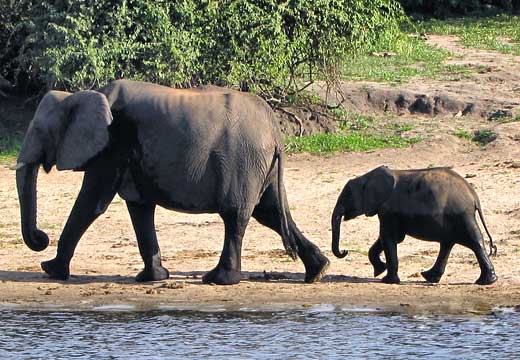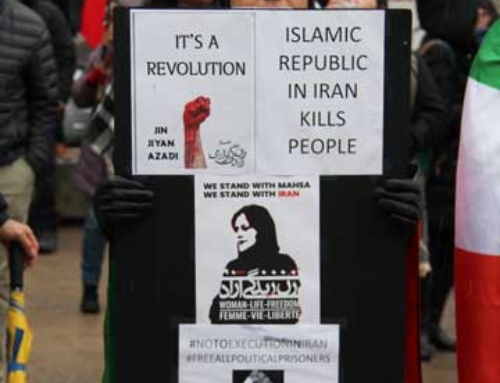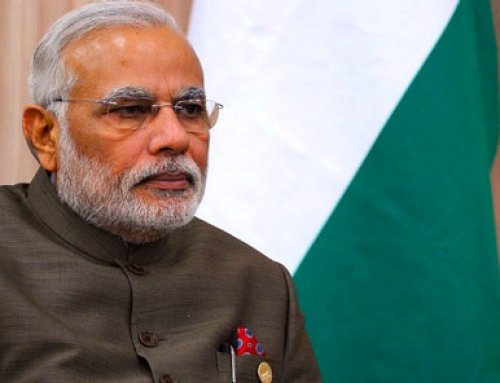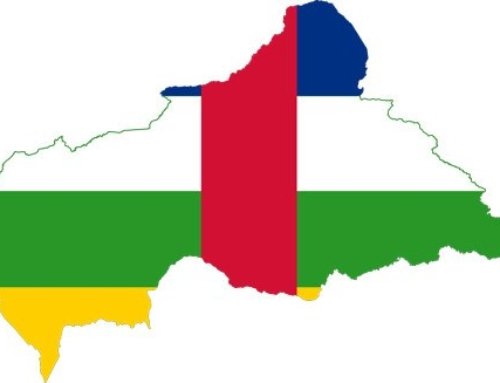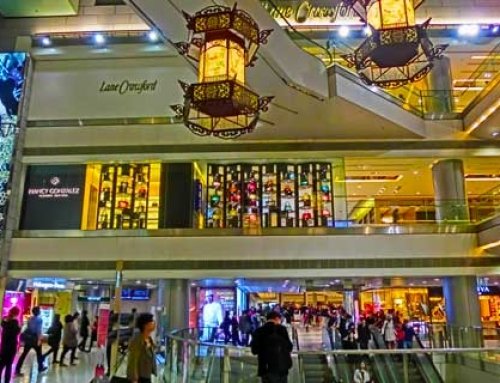Botswana will hold general elections and diamonds and elephants could play an important role in the selection of winners.
The ruling Democratic Party (BDP) has won every election in Botswana since independence in 1966, but this year there is a real chance that this will change. Three of the opposition parties have formed a coalition for democratic change (SVP). They have drafted a manifesto promising the creation of 100,000 jobs in a country where more than 20% of the population is unemployed.
A country built on diamonds
Botswana is often considered an African success story. Its independence was achieved without bloodshed like some of its neighbours.
The country has never experienced civil war and its elections are generally not marred by violence.
Part of Botswana’s “luck” is due to its diamonds. Although Russia produces more diamonds overall, four mines in this southern African state produce the largest quantity of high quality gemstones in the world.
Botswana shares its stake in the industry equally with De Beers, which describes itself as “the world’s leading diamond company“. This agreement generated US$3.5 billion in government revenue last year, and this trade represents up to 40% of the country’s economy.
The money has been used to build roads, schools and hospitals. But after more than 50 years, many people have begun to think that they should benefit more from this manna.
This year, rumours of corruption have contributed to increased scepticism about the relationship between the state and the diamond mining company.
The partnership with De Beers is due for renewal in 2020 and has become an important electoral issue. Transport and Communications Minister Dorcas Makgato defends the current government’s approach in the negotiations.
“Diamonds for us are our future. We are the world’s largest diamond producer and it would be suicidal not to treat this resource with the respect and love it deserves.”
The negotiations had to remain secret, because the government could not betray the content of the agreements, she said.
But Mr Saleshando, the SVP vice-president does not agree.
“95% of the people here have never seen a diamond with their own eyes. The truth is that well-paying jobs are being created in foreign countries through Botswana’s diamonds. We just stay diggers, we just dig the holes.”
Despite or because of its diamond wealth, Botswana has one of the highest rates of income inequality in the world, according to the World Bank, and its population is beginning to wonder why.
The forces present in a parliamentary system
- BDP – has won every election since independence, led by Mokgweetsi Masisi
- SVP – coalition formed in 2012, led by Duma Boko
- GMP – founded by former President Ian Khama, led by Biggie Butale
Voters elect 57 members of the National Assembly and 490 representatives of local governments. The President is elected by the National Assembly for a five-year term. The leader of the political party with the largest number of seats in parliament usually becomes president.
The elephant ‘in the room’
Botswana must be the only country in the world where elephants are a major electoral issue. With a small human population and the largest herd of elephants in Africa, human-animal conflict is a daily concern. Under former President Ian Khama, Botswana has become a model for the conservation of the threatened and/or expanding species in several African countries. His government has been praised worldwide for implementing effective anti-poaching measures, banning hunting and making this country the largest elephant sanctuary in Africa.
Elephants are intelligent and some may have migrated to Botswana to take advantage of the good conditions. But it came at a price. With a national herd of about 140,000 elephants, the population of these pachyderms has become too large with an impact on the environment. Cases of people trampled to death and entire crops destroyed in one day have been reported. The government is increasingly resisting being told by well-meaning foreigners what to do about it.
“There is a conflict between elephants and human beings and they kill people.
So I think killing elephants is a good idea”
President Mokgweetsi Masisi seems less concerned about what the international community thinks than his predecessor. He suggested that the British could try to live with Botswana elephants if they loved them so much. Defying his still powerful predecessor, the new president lifted his ban on trophy hunting. This caused some controversy, but it seemed to be a very popular decision when the BBC reviewed the opinions of the people in the streets of Gaborone. “There is a conflict between elephants and human beings and they kill people. So I think killing elephants is a good idea,” says Albert Lebala, a resident of the capital.
Keorapetse Mpolokang agrees: “They do a lot of damage to crops, especially during the ploughing season.” As a young woman echoed the President’s position: “If other countries want to express their opinion on lifting the hunting ban, they should first come to our country and look at the effects that elephants have left on our people. The elephant issue is one of the causes of the rift between President Masisi and Mr. Khama.
Regime change?
Khama is the son of the country’s founding father and an important cultural leader in central Botswana, so the split of the party he founded, the Botswana Patriotic Front (BPF), is a major reversal. Tshekedi Khama, his brother, caused a shock wave by resigning from Mr. Masisi’s cabinet when he joined his brother in fighting the BDP. They are not part of the SVP, the main opposition party, but they suggested that they could work with them and help them to gain power. Although there is no survey in Botswana, commentators say that there is a greater chance than ever that there will be a regime change at the head of the country. But the BDP is an extremely effective voting machine and has never been defeated. People are looking east to Zimbabwe and know that they have been spared the turmoil experienced by many of their neighbors.
Concern that any change could go wrong
There seems to be a battle in people’s minds between trust in the BDP and a chance to escape the stagnation and waste that seems to have accompanied such a long period in power. “The BDP is a good patriot, but he’s in a comfort zone. There’s nothing going on there,” said Manny, a small business owner. Although he continued to warn: “We need a change – even if I’m afraid there will be bad consequences if we do.” The SVP relies on its ability to persuade people that, to mature, their democracy needs a new ruling party. But it is understandable that in the absence of prior experience from another governing party, there is a concern that any change could go wrong.

